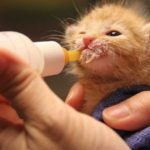Diarrhea is a common symptom in animals, and cats are no exception. But what causes it and how can we treat it to ensure our feline friends stay healthy? Let’s find out!
1 Causes of Diarrhea in Cats
Bacterial and Parasitic Infections:
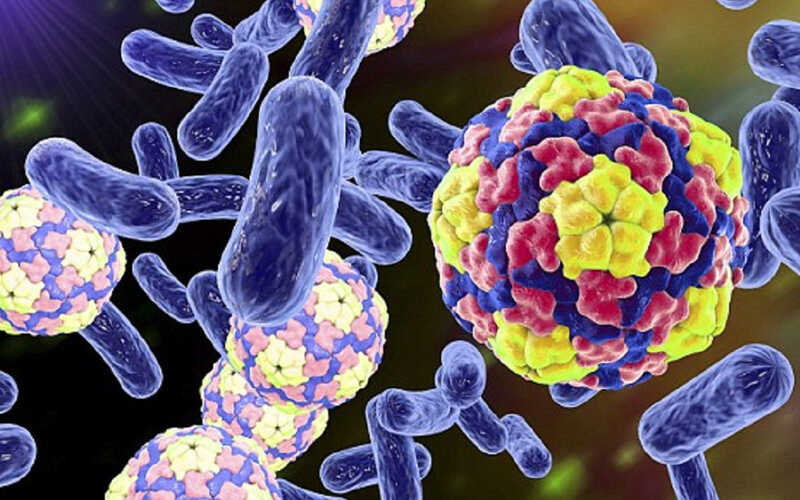 Bacterial and Parasitic Infections
Bacterial and Parasitic Infections
Cats can easily pick up parasites through their daily activities, such as eating or chewing on household items. This is especially true for newborn kittens, who are more susceptible to infections.
Certain bacteria and parasites, such as E.Coli, Salmonella, Campylobacter, and coccidia, can cause acute intestinal inflammation. Common symptoms include vomiting, diarrhea, bloating, dehydration, and even death if not treated promptly with deworming medication.
Digestive Disorders:
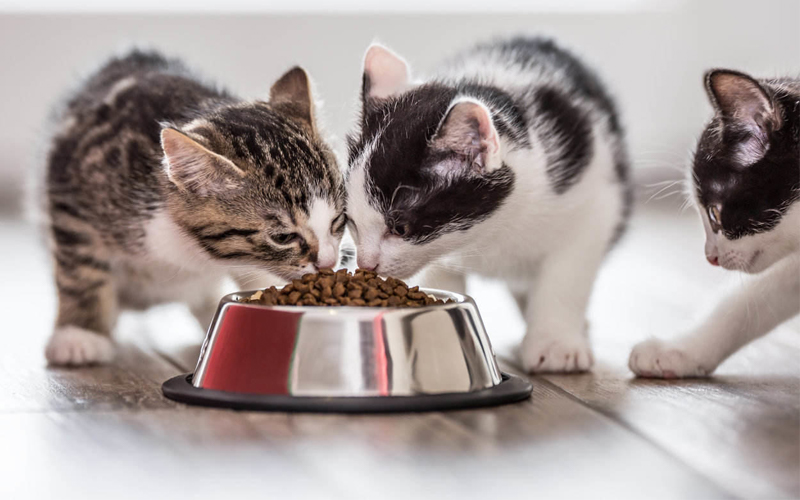 Digestive Disorders
Digestive Disorders
Dietary Issues: Your cat’s digestive system may be disrupted by dietary problems. Diarrhea could be caused by spoiled or moldy food, or even by unclean food bowls. It’s important to pay attention to portion sizes and ensure they are appropriate for your cat’s age and development stage.
Ingesting Foreign Objects: Cats are naturally curious and active, but this can lead to them eating things they shouldn’t. They may consume decaying animal carcasses or harmful chemicals such as gasoline, coal, detergents, fleas, soap, or herbicides.
Impact of Epidemics:
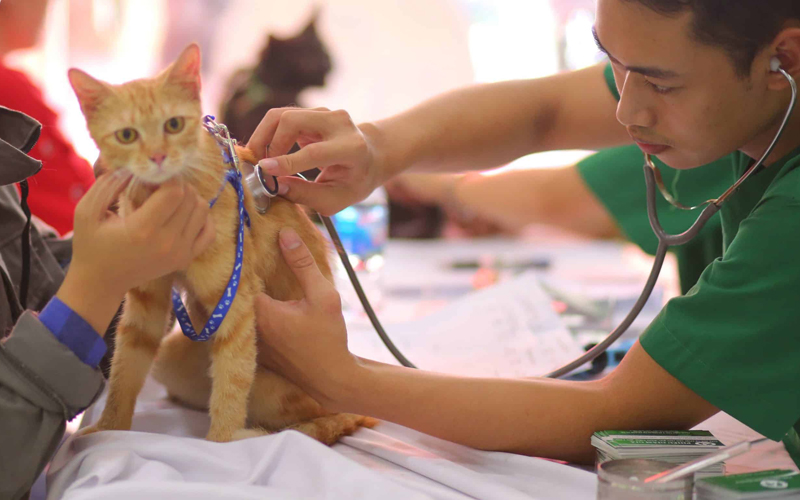 Impact of Epidemics
Impact of Epidemics
If your cat hasn’t been properly vaccinated, they are at a higher risk of contracting diseases that can lead to severe diarrhea:
-
Feline Leukemia Virus Complex: The FeLV virus can cause fever, loss of appetite, frequent diarrhea, and dehydration.
-
Feline Immunodeficiency Virus (FIV): FIV causes localized anemia, leading to skin and lymph node inflammation. Diarrhea occurs when cats lick the inflamed areas and ingest the discharge.
-
Feline Infectious Peritonitis (FIP): This disease, caused by a Coronavirus, disrupts circulation and leads to a lack of tissue fluid. It can also cause dehydration, anemia, and diarrhea, and in severe cases, liver and kidney failure, resulting in death.
-
Feline Panleukopenia Virus: With a mortality rate of 90%, this virus causes severe hemorrhagic diarrhea.
2 Home Remedies for Cat Diarrhea
There are several ways to treat cat diarrhea at home:
Balance Protein and Fiber Intake: To maintain a healthy and adaptable digestive system, ensure your cat’s diet has a good balance of protein and fiber.
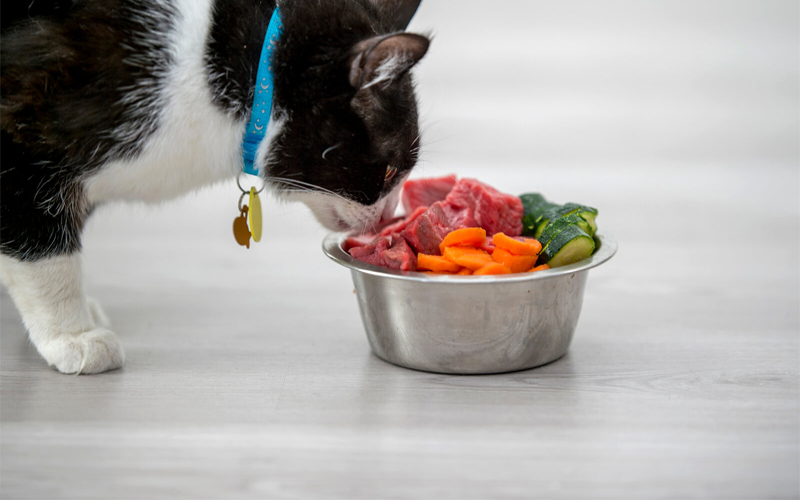 Balance Protein and Fiber Intake
Balance Protein and Fiber Intake
Ensure Adequate Hydration: Diarrhea can lead to dehydration, so make sure your cat has access to fresh water at all times.
Regular Deworming: Parasites are a common cause of diarrhea in cats. It is recommended to deworm your cat every six months to prevent the growth of worms.
Discover 7 types of safe and effective deworming medications to help your furry friend get back on their paws!
Metamucil – A Fiber Supplement: During diarrhea episodes, mix ½ teaspoon of Metamucil with your cat’s food, twice a day, for 5-7 days. This should help control the condition.
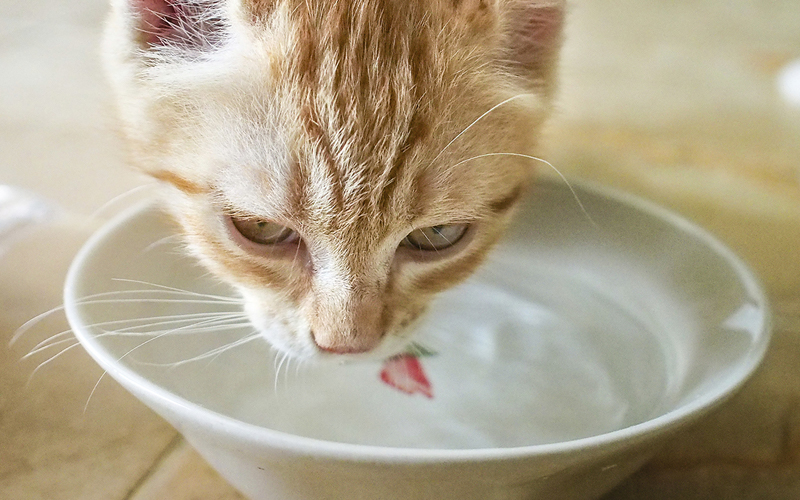
Probiotics and Digestive Enzymes: Improve your cat’s diarrhea by adding digestive enzymes and beneficial bacteria to their diet.
Vitamin C: Adding vitamin C to your cat’s diet can help reduce stress and improve overall well-being, which may alleviate diarrhea.
If your cat shows signs of severe dehydration, loss of appetite, or bloody stools, seek veterinary advice immediately for a proper diagnosis and treatment plan.
3 Preventing Diarrhea in Cats
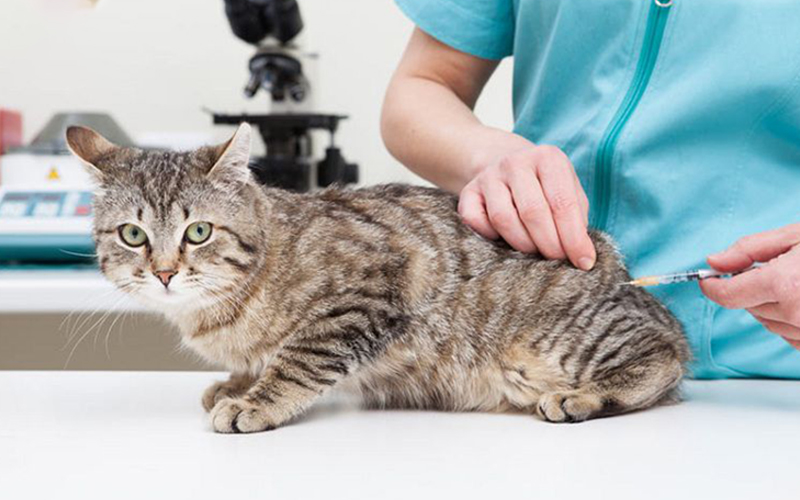 Preventing Diarrhea in Cats
Preventing Diarrhea in Cats
To ensure your cat’s well-being, regularly monitor their health to detect any abnormalities early on. This will allow you to make timely adjustments to their diet and seek veterinary care if needed.
Additionally, regular deworming and vaccinations are crucial to reducing the risk of bacterial and viral infections. Start vaccinations at a young age or as soon as you bring your new cat home.
Finally, maintain a clean environment for your cat, including their living space and surrounding objects. Provide a balanced and species-appropriate diet, and avoid sudden changes in their food to prevent digestive issues.
4 FAQs about Cat Diarrhea
What should I feed my cat if it has diarrhea?
When your cat has diarrhea, fast them for 12-24 hours to give their digestive system a rest, while still providing plenty of water to prevent dehydration.
Offer two bowls of water, one with fresh water and the other with chicken or beef broth, to ensure adequate protein intake.
After the fasting period, introduce soft, easily digestible foods like chicken broth rice and vegetable purees to restore balance to their digestive system. To prevent a relapse, divide their meals into smaller portions.
You can also use probiotics to restore the balance of gut bacteria, or offer yogurt, ensuring it doesn’t contain xylitol, which is toxic to cats.
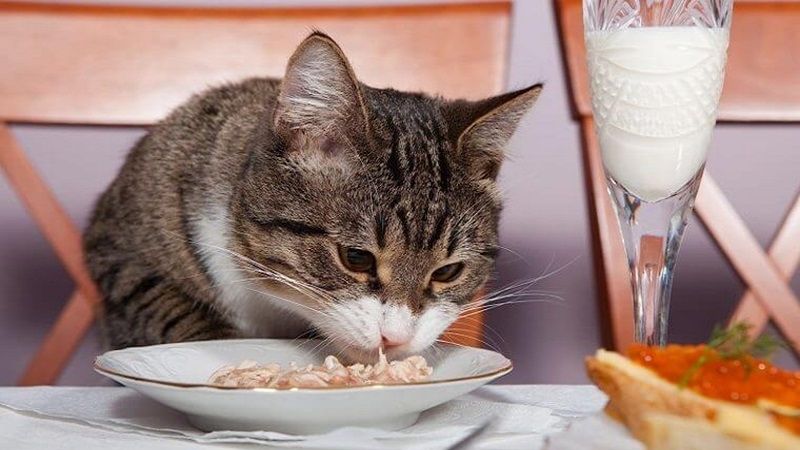 Offer Soft and Easily Digestible Foods After Diarrhea
Offer Soft and Easily Digestible Foods After Diarrhea
What medication can I give my cat for diarrhea?
For diarrhea, you can purchase medication from a pharmacy, but be sure to follow the veterinarian’s instructions for dosage and administration. Alternatively, you can give your cat Metamucil twice a day for 5-7 days to see an improvement in their condition.
Should I take my cat to the vet for diarrhea?
Whether or not you need to take your cat to the vet depends on the severity and duration of the diarrhea. If it is mild and recent, you can try the home remedies mentioned above. However, if the condition persists or worsens, professional veterinary care is recommended.
Now you know the causes of cat diarrhea and how to treat and prevent it at home. We hope this guide helps you become a more informed cat owner and keeps your furry friend happy and healthy!
























